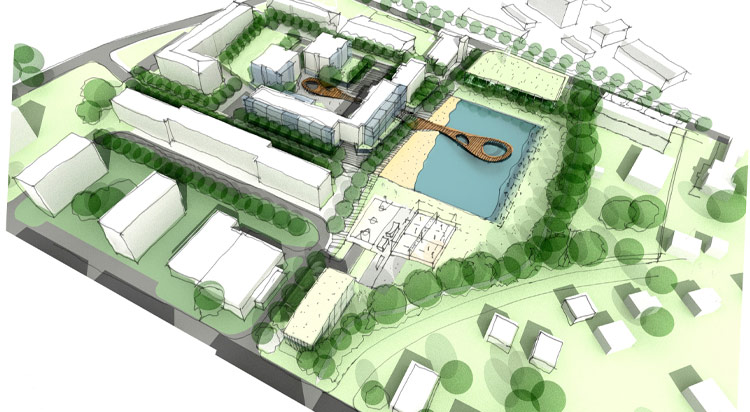
Land Use & Zoning
Zoning Permit
How you use and develop a property is restricted by zoning. Constructing or modifying a structure requires a zoning permit and a building permit in New Jersey. Permissible uses and structures vary between districts and are determined by reviewing the municipal code for the zoning district where a property is located. Certain uses and structures may be protected by state law, such as agricultural activities or certain group homes.
Municipalities also restrict the physical location and dimensions of structures, such as setbacks from property lines, building height, lot size, and fencing height. If a zoning permit is denied, a property owner can seek relief by making an application to a municipal board.
If your proposed use or structure does not comply with local code, a variance may allow you to proceed with your project, provided certain criteria are met.
Never Assume a Structure or Use Will Be Allowed
Applications
Applications are required for variances, subdivisions, conditional uses, site plans, and interpretations of code. Depending upon the type of relief required, an application is made to either the municipal planning board or the zoning board of adjustment. Applications are approved with conditions or denied. Once approved or denied, the local decision is subject to appeal.
Application Process
Applications have strict notice requirements, are technical, and typically require expert testimony. Neighboring property owners can submit evidence in support of or against an application. Applications are reviewed by township professionals at the applicant’s expense. A public hearing is held where the applicant and its experts submit testimony and address questions by the board and its professionals. Multiple hearings might be required. The process takes months, sometimes longer. Given the costs, range of possible outcomes, and potential restrictions, it is wise to consult with an attorney prior to investing in a land use application, and to have an attorney prepare and present your application.
Violations
Properties are sometimes used in a manner that violates current zoning. This may be because the structure is “grandfathered,” meaning its nonconformity predates zoning restrictions. Such nonconformity often cannot be intensified.
In other cases, the building may have been constructed or modified without obtaining required approvals. Potential purchasers or tenants of such a property may inherit a legal issue or find themselves subject to violations and unworkable restrictions. Property owners may be ordered to correct violations, discontinue uses, tear down a structure, or pay penalties if an appropriate approval is not timely obtained.
Help Is Available
An experienced land use and real estate attorney strategically navigates the existing versus required permits and approvals for any structure or use. Required contracts should be carefully drafted with an understanding of both your target property and your objectives. Your attorney should have a network of trusted real estate professionals, as well as experience with expert witnesses, application strategies, drafting public notices, presenting and defending an application at hearing, reviewing resolutions, and facilitating permits.
Since entering law school in 1997, Attorney Nicole L. Voigt has dedicated her legal career to work in real estate, land use, construction, and environmental matters facing property owners, tenants, and investors. She routinely appears before land use boards and advises applicants or concerned citizens regarding land use matters. Her clients have ranged from large companies to individuals and not-for-profits. Nicole enjoys working with agricultural, commercial, residential, and industrial properties, and also has experience with Right to Farm and agricultural business and development.
Nicole Voigt cares about your farmers, families, and businesses, and is experienced in real estate, business, land use, and due-diligence specific to agricultural properties.
